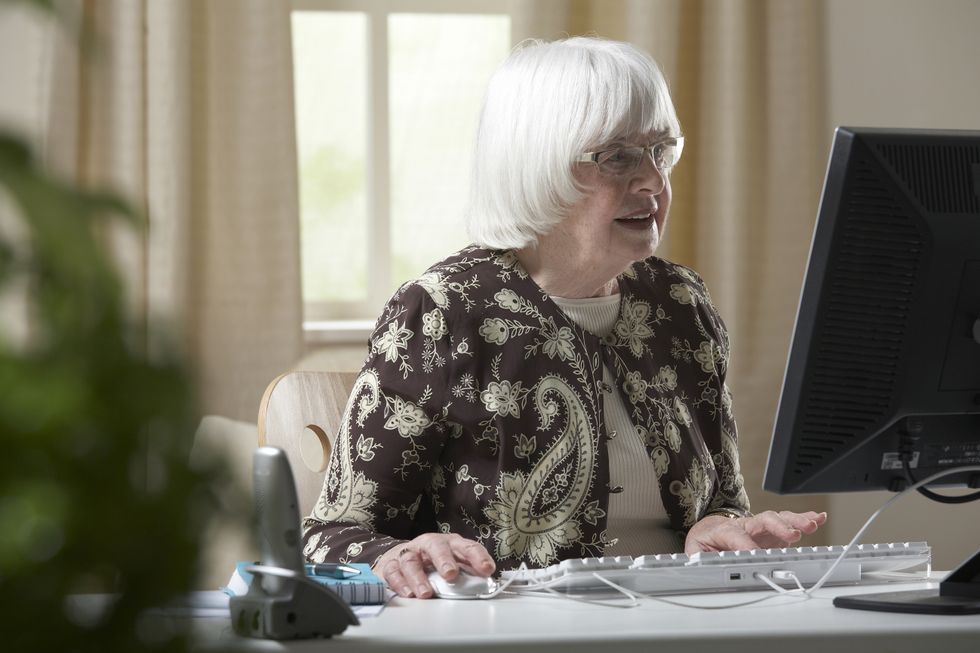Digital ID 'locking out the elderly' as two million over 65s don't use the internet

WATCH IN FULL: Keir Starmer announces digital ID cards for all British adults |
GB NEWS
Darren Jones claimed the IDs 'will be the bedrock of the modern state'
Don't Miss
Most Read
Trending on GB News
Digital IDs could lock the elderly out of key services, Sir Keir Starmer has been warned.
Elderly groups warned that the Prime Minister's proposals for compulsory digital ID risked excluding people who "could not or would not" engage with the plan.
Studies suggest that over two million people aged 65 or over do not use the internet.
While the cards will only be mandatory for work, the Government explained that the IDS will be expected to be "rolled out to all UK citizens and legal residents" by 2029.
TRENDING
Stories
Videos
Your Say
The Government claimed it would make it easier for people to pay rent, apply for free childcare and access benefits.
Darren Jones, Sir Keir's chief secretary, said the state will use the IDs for far-reaching purposes in the future.
Mr Jones, who is leading the scheme, said: "If we get this digital ID system working and the public being with us, that will be the bedrock of the modern state and will allow for really quite exciting public service reform in the future."
Former director-general of Border Force, Tony Smith, who led the development of biometric permits under Sir Tony Blair, said there is a danger that older people could be penalised and left behind.
LATEST DEVELOPMENTS

It is feared that elderly people 'could not or would not' get a digital ID
| GETTYMr Smith explained: "There will be a cohort of people saying they cannot do this or won't do this. The Government will have to figure out how they manage this cohort. That's going to have to be a carrot rather than stick approach."
Caroline Abrahams, charity director at Age UK, warned the elderly could be excluded in a "chaotic, unfair and inefficient" rush to expand digital IDs.
She said: "There is a responsibility on decision-makers to ensure that everyone benefits from the advance of technology, whether they are digital natives or not. This means developing so-called 'assisted digital' approaches too.
"The sprint towards digital by default is chaotic, unfair and inefficient, and it's only with Government leadership that we've any chance of getting the best from it and sharply reducing the numbers who feel totally excluded, among them millions of older people. If digital ID cards are coming, this really must change."
Age UK delivered a 173,949 strong petition to No10 in July, warning them to "make sure older people are not left behind".
One 76-year-old pensioner, Mike, said: "The stress and frustration of trying to operate online - I simply go round in circles, and it is very upsetting. It all makes me feel rejected and excluded."
Under the current plans, digital IDs will be stored on people's phones, with proof of a person's name, date of birth, nationality or resident status, a photo, and possibly addresses.
To prevent any exclusion, officials said there would be "physical alternatives" for those without smartphones.

Darren Jones claimed digital IDs will provide 'quite exciting public service'
| PAProfessor Brian Bell, head of the Government's migration advisory committee, said it was a "broadly sensible" move in replacing the current plethora of voluntary IDs used by employers.
He said: "Having a unique digital ID for every adult in the UK has the advantage of having a single ID that everyone must have and will be issued immediately to migrants on first arrival.
"Of course, it can't prevent employers who choose to break the law and employ those without the right to work, but it probably helps enforcement and will likely reduce the compliance costs for the vast majority of firms that do want to do the right thing."
Some 93 per cent of GB News viewers believe the Government should not roll out digital IDs.
More From GB News










